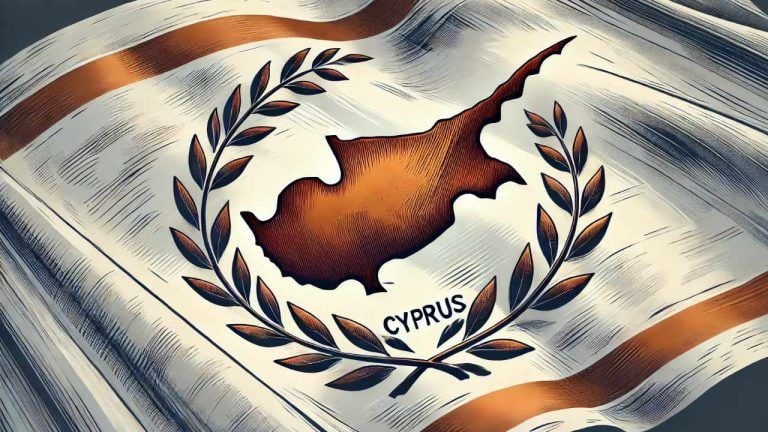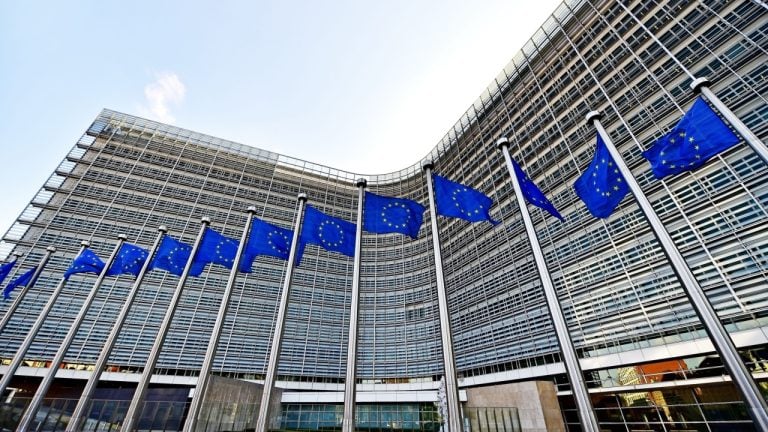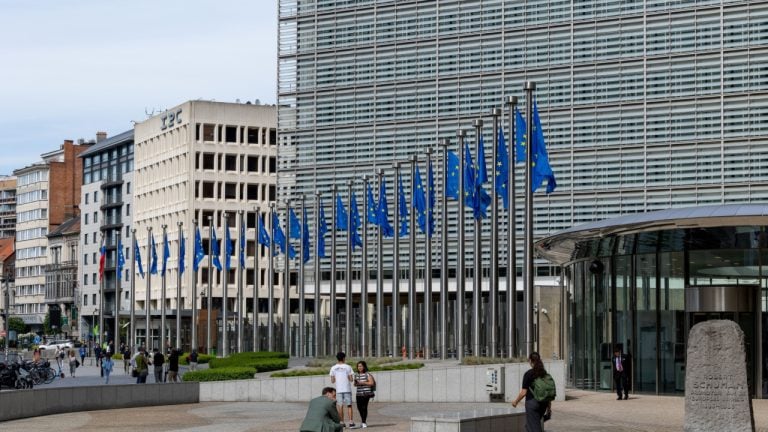 Key deadlines for crypto-asset regulation are approaching, as Cyprus’ regulator announced that the EU’s Markets in Crypto-Assets Regulation (MiCAR) will take effect for service providers by December 2024, with registration closing by October. Providers already registered may operate until mid-2026 or until their authorization status is determined, marking a major shift in crypto compliance across […]
Key deadlines for crypto-asset regulation are approaching, as Cyprus’ regulator announced that the EU’s Markets in Crypto-Assets Regulation (MiCAR) will take effect for service providers by December 2024, with registration closing by October. Providers already registered may operate until mid-2026 or until their authorization status is determined, marking a major shift in crypto compliance across […]

The European Securities and Markets Authority acknowledged the legal limitations raised by the European Commission but emphasized the importance of the framework’s initial objectives.
The European Union’s markets watchdog believes that the bloc’s cryptocurrency regulatory framework, the Markets in Crypto-Assets Regulation (MiCA), needs to be modified.
On Oct. 16, the European Securities and Markets Authority (ESMA) released an official opinion on MiCA, encouraging the European Commission to move forward with its proposal to update several aspects of the framework.
“ESMA acknowledges the legal limitations raised by the Commission but emphasizes the importance of the policy objectives behind the initial proposal,” the regulator wrote.

The European Parliament is set to establish a new European Commission, and it will determine the next five years of crypto policy for the European Union.
It’s an election year around the globe, and the European Union is no exception. The European Parliament will vote this autumn on a new European Commission, which converts political priorities into draft legislation.
The new commission will not take office until November at the earliest, so it is still too early to assess the impact of the class of 2024 on cryptocurrency policies. However, we can identify a few trends predictive of how the fresh lawmakers are likely to handle regulation.
The first trend is that Europe’s center of gravity is moving to the right, and this will impact businesses of all sizes. Taxation and approaches to innovation will be subject to debate. France in particular will have a bumpy ride forward due to rising instability and its uncertain political future. It’s tied to the parliamentary election, and it’s something crypto companies should note.

The European Commission has laid out its plans for becoming a “world leader” in Web 4.0 and the Metaverse.
The European Commission has tipped “extended reality” — technology that enables people to interact with virtual worlds — will create as many as 860,000 jobs in Europe by 2025.
Extended reality or XR is an umbrella term for immersive technologies including virtual reality, augmented reality and mixed reality, and is a “major technology enabler” for virtual worlds, said the Commission on July 11.
Europe throws its hat in the ring to become a world leader in Web 4.0 and virtual worlds.
— European Commission (@EU_Commission) July 11, 2023
The new internet will impact the way people live together, bringing many benefits.
And we need to have people at the centre and shape it according to our EU digital rights and principles. pic.twitter.com/rc0R3qUm0y
“The impact on employment is expected to be highly significant,” it said, noting that another 1.2 million to 2.4 million jobs would be directly or indirectly created in other sectors by 2025.
However, the Commission noted that today, most of the innovation around the Metaverse occurs in the United States, China and South Korea.
“Contrary to these countries, in the EU there are no tech giants to lead the investment in the development of virtual worlds over the next decade.”
Most of the AR/VR market activity in Europe focuses on gaming, media and entertainment, but there’s “much room” for other applications, including retail, healthcare, military and defense, and manufacturing.
The Commission noted that virtual worlds, enabled by these XR devices, are one of the technologies enabling the “next generation” of the world wide web — Web 4.0 — where physical and digital objects come together in virtual environments in real-time.
“We are at the onset of a major technological transition, Web 4.0. Virtual worlds are an important enabler of Web 4.0 that can significantly revolutionize the daily lives of people and open a wide range of opportunities in many business and industrial ecosystems,” it said.
Some examples included using virtual worlds to train surgeons for complex medical procedures, using “digital twins” to preserve cultural heritage buildings, or even, using 3D models to solve global warming.
In its working document submitted to the European Parliament, the Commission proposed its plan to become a “world leader” in Web 4.0 and the Metaverse.
Related: EU blockchain sandbox unveils first 20 use cases after wave of applications
Web 4.0 (aka the #Metaverse ) will allow an integration between digital and real objects and environments.
— Thierry Breton (@ThierryBreton) July 11, 2023
Europe has what it takes to lead this next technological transition — notably for the #industry.
Our strategyhttps://t.co/Bc39OYDkru pic.twitter.com/v4iGqtEkKw
“Today, Europe throws its hat in the ring to become a world leader in Web 4.0 and virtual worlds,” said Thierry Breton, the European Commissioner for Internal Market.
A total of 10 actions have been proposed by the Commission to achieve this, including attracting specialized virtual world talent to the region, creating regulatory sandboxes to test novel ideas and developing global standards for interoperable metaverses.
“Europe has what it takes to lead the next technological transition: innovative start-ups, rich creative content, and industrial applications, a strong role as a global standard-setter, and an innovation-friendly and predictable legal framework,” added Breton.
Web3 Gamer: Apple to fix gaming? SEC hates Metaverse, Logan Paul trolled on Steam

The stablecoins with the largest market cap are pegged to the U.S. dollar, so what risk does de-dollarization pose to stablecoin users?
It is an empirical fact that the United States dollar is continuing to lose its dominant role as the global reserve currency, but what might happen to the stablecoin market should it be superseded?
According to data from the International Monetary Fund, the U.S. dollar now accounts for just over 58% of global foreign exchange reserves, a considerable decrease from the 71% share it had in 2001.

Jeremy Allaire — the CEO of USD Coin (USDC) issuer Circle — highlighted this shift at the April 26 Consensus 2023 conference, arguing that the U.S. must implement stablecoin legislation and digitize the U.S. dollar to remain competitive amid the “very active de-dollarization taking place.”
De-dollarization refers to the process of reducing the use of the U.S. dollar in a country’s economy, and powerhouses like Russia and China are actively pursuing de-dollarization as they look to replace the U.S. dollar with digital assets, other fiat currencies, and potentially a BRICS currency between Brazil, Russia, India, China and South Africa.
As an example of this de-dollarization taking place, the Chinese yuan has recently overtaken the U.S. dollar as China’s most used cross-border currency according to Bloomberg, increasing to a high of 48% of transactions after it made up nearly 0% in 2010.
Chinese Yuan overtakes US dollar as most-used currency in China's cross-border transactions for the first time in history.
— Genevieve Roch-Decter, CFA (@GRDecter) April 26, 2023
Yuan-share rose to a record high of 48%, UP from nearly zero in 2010.
U.S-share declined to 47%, DOWN from 83% over the same period.
Wow. pic.twitter.com/Lm3Rygpm45
Another example that may be more familiar to crypto users can be seen in El Salvador, which in 2021 became the first country in the world to use Bitcoin (BTC) as a legal tender.
Following news that crypto exchange Coinbase is launching a derivatives exchange in Bermuda, some crypto proponents such as venture capitalist David Sacks have even suggested that the U.S. may be attempting to prevent crypto firms from accessing bank services in the country in an intentional effort to drive them overseas out of fear that crypto could further eat into the dominance of the U.S. dollar.
Speaking to Cointelegraph, Dr. Joachim Schwerin — principal economist for the European Commission — suggested changes in the world’s leading reserve currency regularly occur, adding:
“Since we have records on financial data, the role of globally leading currency has changed every 80 to 110 years. Times of accelerated global frictions that significantly affect trade patterns vastly accelerate such changes.”
The sanctions placed on Russia by the U.S. are a prime example of this global friction, and on April 16 Treasury Secretary Janet Yellen noted that sanctions could risk the U.S. dollar hegemony as targeted countries look for alternative currencies.
Many people are likely familiar with the video “Principles for Dealing with the Changing World Order’ by billionaire investor and hedge fund manager Ray Dalio, in which Dalio suggested that having the leading reserve currency “is a key factor in a country becoming the richest and most powerful empire,” which is an opinion shared by many pundits.
The US used its advantage of US dollar hegemony to build an aggressive military to bully the whole world.
— Richard (@ricwe123) April 18, 2023
De-dollarization will cause the US dollar to collapse, exactly similar to what happens when Ponzi schemes collapse. pic.twitter.com/GALHzBj0AI
One of the main benefits of being the dominant reserve currency is thought to be the increased level of demand it experiences relative to other countries due to it being widely accepted globally and regarded as a safe-haven asset, thus making it more valuable.
In response to questions from Cointelegraph, Tether — the issuer of the largest stablecoin by market capitalization Tether (USDT) — noted that stablecoins which are pegged to the U.S. dollar also increase demand for the currency.
Increased demand for the U.S. dollar theoretically makes it more valuable relative to other currencies, which makes importing goods and services relatively cheaper for the U.S. and allows the country to borrow funds at lower costs.
Yet in response to concerns about what would occur if the U.S. dollar lost its hegemony, many economists cite the words of Nobel Prize-winning economist Paul Krugman, who argued back in August 2015 that “while reserve-currency status may have political symbolism attached, it's essentially irrelevant as an economic goal” due to its benefits being worth “a small fraction of one percent of GDP.”
It is worth noting that economists are famous for disagreeing with one another. In an April 11 survey of economists, 50% of them disagreed with Krugman’s assertion that the benefits are only minor.
According to CoinMarketCap, every stablecoin with a market cap exceeding $1 billion is pegged to the U.S. dollar, which makes sense given its dominant status.
As the U.S. dollar continues to lose its dominance, however, these stablecoins may see their usage diminish.
Tether highlighted that stablecoins are “particularly beneficial for citizens in emerging markets who may face high levels of inflation and currency instability,” or those in countries with limited access to financial services, so even if the U.S. dollar and stablecoins pegged to it diminish, others will likely step in.
Schwerin noted that “big issues are already now reaching out outside the U.S. to cater for exactly this scenario,” referencing stablecoins like Circle’s Euro Coin (EUROC) which is pegged to the euro, adding:
“There will have to be quite a lot of improvisation and experimentation, which is good for innovation.”
Schwerin noted that he didn’t know exactly what would work, but expressed optimism that the crypto community would be able to quickly find solutions.
Tether said that it “has always been at the forefront of innovation,” and pointed to other products it has released such as Tether Gold (XAUT) — a stablecoin collateralized by gold — as well as other fiat-backed stablecoins.
While stablecoins can be designed in very different ways, the most frequently used ones are currently both fully/over-collateralized and exogenous (backed by external assets).
As long as stablecoins have sufficient collateral, their users should not be worried that a transition away from U.S. pegged stablecoins will cause any liquidity issues, particularly when a high proportion of the collateral is stored as highly liquid assets.
Magazine: Here’s how Ethereum’s ZK-rollups can become interoperable

The research unit will be tasked with auditing the AI-backed algorithms used by large technology firms such as Google and Meta.
The European Commission has launched a new research unit that will investigate the impact of the algorithms made and used by prominent online platforms and search engines such as Facebook and Google.
The research unit dubbed the European Centre for Algorithmic Transparency (ECAT), launched on April 18 and will help the Commission identify and address any potential risks posed by these platforms.
ECAT will be embedded within the European Union’s existing Joint Research Centre (JRC) which conducts research on a broad range of subjects including Artificial Intelligence (AI).
Like the design of the Las Setas building in Seville, algorithms are complex structures that shape our online experience.
— European Commission (@EU_Commission) April 18, 2023
This is what we are working on at the European Centre for Algorithmic Transparency. We want to make the online experience safer for all.#DigitalEU
The team will consist of “data scientists, AI experts, social scientists and legal experts” that will analyze and evaluate the AI-backed algorithms used by Big Tech firms.
AI-based programs are built using a series of complex algorithms, meaning ECAT will also be looking at algorithms that underpin AI chatbots such as OpenAI’s ChatGPT, which some believe could eventually replace search engines.
4. New systems like Microsoft’s Bing chatbot and OpenAI’s ChatGPT threaten traditional search engines such as Google, which may explain why Samsung is reportedly considering replacing Google with Bing as its default search engine.
— Debrieft (@thedebrieft) April 17, 2023
On its website, the Commission claims ECAT will conduct algorithmic accountability and transparency audits as required by the Digital Services Act (DSA) — a set of European Union rules enforceable as of Nov. 16, 2022.
According to the EU’s internal market commissioner, Thierry Breton, ECAT will “look under the hood” of large search engines and online platforms in order to “see how their algorithms function and contribute to the spread of illegal and harmful content.”
Related: UK may have crypto regulation within a year, says senior minister
Nearly a dozen EU politicians called for the “safe” development of AI in a signed open letter on April 16.
The lawmakers asked United States President Joe Biden and European Commission President Ursula von der Leyen to convene a summit on AI and agree on a set of governing principles for the development, control and deployment of the tech.
Tech entrepreneur Elon Musk also had issues with the development of AI, arguing on an April 17 Fox News interview that AI chatbots like ChatGPT have a left-wing bias and said that he was developing an alternative called “TruthGPT.”
Asia Express: Bitcoin glory on Chinese TikTok, 30M mainland users, Justin Sun saga
 Silicon Valley Bank’s (SVB) collapse has had a “limited impact” on the European Union but authorities must still “stay alert” to events as they unfold, European Commissioner Mairead McGuinness has said. Despite McGuinness’ reassuring remarks, stocks of Europe’s largest banks still plunged by as much as 10% on March 15. Silicon Valley Bank’s ‘Limited’ EU […]
Silicon Valley Bank’s (SVB) collapse has had a “limited impact” on the European Union but authorities must still “stay alert” to events as they unfold, European Commissioner Mairead McGuinness has said. Despite McGuinness’ reassuring remarks, stocks of Europe’s largest banks still plunged by as much as 10% on March 15. Silicon Valley Bank’s ‘Limited’ EU […] The ministers of finance of the countries in the eurozone reaffirmed their support for efforts to prepare for the potential launch of a digital euro. Meanwhile, the single currency area’s monetary authority sought to reassure future users that the new currency will be “preserving privacy by default and by design.” Eurogroup to Remain Involved in […]
The ministers of finance of the countries in the eurozone reaffirmed their support for efforts to prepare for the potential launch of a digital euro. Meanwhile, the single currency area’s monetary authority sought to reassure future users that the new currency will be “preserving privacy by default and by design.” Eurogroup to Remain Involved in […] The European Commission has set out to oblige platforms processing crypto transactions for EU residents to share information with tax authorities in the Union. According to the proposal, all crypto service providers, regardless of where they are based, will have to abide by the new rules. EU to Consider New Reporting Requirements for Crypto Platforms […]
The European Commission has set out to oblige platforms processing crypto transactions for EU residents to share information with tax authorities in the Union. According to the proposal, all crypto service providers, regardless of where they are based, will have to abide by the new rules. EU to Consider New Reporting Requirements for Crypto Platforms […] The European Commission is preparing to discuss with member states the adoption of a common tax regime for crypto assets, European officials have indicated. The talks with national treasuries are expected to start next year with the aim to end the differentiated tax treatment of cryptocurrencies across the bloc’s 27 jurisdictions. European Union to Consider […]
The European Commission is preparing to discuss with member states the adoption of a common tax regime for crypto assets, European officials have indicated. The talks with national treasuries are expected to start next year with the aim to end the differentiated tax treatment of cryptocurrencies across the bloc’s 27 jurisdictions. European Union to Consider […]